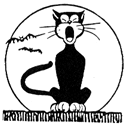When can we take our child out trick-or-treating?
/At what age can we take our child out trick-or-treating for Halloween? We've been invited to several parties this year, but Brian is only three-and-a half and I think he's kind of young. At the same time, a lot of his friends (and ours) will be going. What's the right time for this sort of thing?
Halloween is a very important holiday in the Bay Area. Children, parents, and plenty of adults welcome the chance to dress up, make believe, and eat lots of candy. Halloween is such a special holiday for so many of us that it's hard to stop and think if all of the fun is really that much "fun" for children who are so young that they don't need a special day to make believe and dress up in a costume!
For some children under age five Halloween festivities can in fact be overwhelming or even scary. Before you decide what activities will be right for Brian, take a moment to look at the holiday from his point of view.
Children from three to five years old are just beginning to develop their imaginations. They mix up fantasy and reality in ways that reflect their real life experiences. Even though a three-year-old can often tell you if something is "pretend" or "real", the border between the two is very blurry for him. We expect children to accept some kinds of "reality" that aren't "real". A television character that talks like a person but looks like a giant bird or dinosaur isn't "real", of course. But he is in your living room and your child may sing along with him. Suppose you go to a show and see dancers or actors in costumes pretending to be something very different than regular people. What is real, anyway?
The make-believe that surrounds a holiday like Halloween can be equally confusing, but what makes Halloween more of a problem for young children is that many of the costumes and characters on this holiday are intended to be scary. Older children can enjoy the thrill of spooky and scary costumes and displays because they're pretty sure that ghosts and witches aren't real. Younger children aren't sure at all..
You may or may not want to shield your child from all of the scary parts of Halloween (and if you have older children in your family you may not be able to anyway). However, you can keep your child's experience from being too overwhelming by following some of these guidelines:
• Don't push your child to look at anything he finds upsetting--if he turns away from masks in store windows, don't try to convince him that he shouldn't be afraid. Instead, say something like, "Those are the Halloween masks that some kids like but other kids don't like at all. You don't have to look at them, but they can't hurt you." In this way, you accept your child's feelings but at the same time tell him that he doesn't need to be afraid.
• Many children will not want a special costume for Halloween. A two-year-old may tolerate being dressed up as long as the costume is comfortable. Three- or four-year-olds will often prefer "dress-up" outfits that they can wear year round: capes, hats, junk jewelry or fancy clothing. Don't feel pressured to create or buy an elaborate costume. Other parents may be impressed but your child probably won't care. (If you make a big deal about choosing a costume from a catalogue, you may find that by the time it arrives your preschooler is interested in something else).
• Don't expect your preschooler to wear a mask. Many young children get upset about the idea that they might be hidden behind a mask. A pre-school age child may reason: "If no one knows who I am, am I still me?" Masks are often very uncomfortable, no matter how cute. Some children will be scared if can’t see a parent’s face behind a mask, so curtail your own desire to surprise your young child.
• If you take your child trick-or-treating, try to avoid houses where you will be met by adults in scary costumes. Limit the number of houses you visit to neighbors or friends. Most young children will happy to come home after half an hour.
• If you stay home, be careful about letting your child answer the door. Once a three-year-old has seen a bloody monster in a black cape on her front porch, she can have trouble feeling safe for a long time! A good solution is to let your child watch a favorite video while you pass out the treats.
You may think that these guidelines are too strict, or that following them will deprive you of some of the fun of Halloween. However, if you push your child too fast and you wind up spending hours at bedtime or in the middle of the night dealing with fears and nightmares, you may wish you had just bought yourself a big bag of candy and stayed home!
